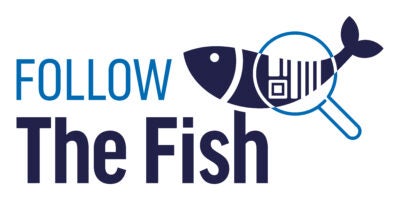Follow the Fish

Join us to demand more information for all seafood in the EU
When you buy a can of tuna, do you really know what you’re getting? Perhaps you’ve wondered where it comes from but found no useful information on the label?
There’s a loophole in EU law: while fresh and frozen fish must be traced from sea to plate, processed fish does not. So, while we’re given crucial information such as species name, origin, production method and catch method for products such as cod fillets, we’re left in the dark when it comes to processed products such as canned tuna, squid rings or fish fingers. Despite your best intentions to eat sustainable or local fish, you might be buying products that come from illegal, unsustainable, or unethical fishing. The origin of a product is especially important in the EU, as a staggering 70% of the fish consumed in the EU is imported.
What is the Follow the Fish movement and what are we asking for?
The Follow the Fish movement brings together key players in the seafood supply chain such as seafood businesses, consumer organisations, chefs, restaurants, policy makers, and civil society from the EU and beyond. Our goal is to collectively tell EU decision makers that we want to know where the fish we buy comes from, what species it is how it was caught, as well as the vessel’s country of registration, and that this information should be available for all seafood products.
We therefore are calling on the EU to:
- Basic information such as species, origin, fishing gear and production method should be required for all seafood products.
- Require restaurants, hotels and other mass caterers to provide this key information to their customers.
- Consumer information should specify the flag state – the country of registration of the fishing vessel – for wild-caught seafood products.
Why act now?
In 2024, the European Union strengthened traceability provisions of seafood products to ensure that key information on seafood is transmitted along the supply chain in a digital manner. By 2029, all seafood products will be traceable. This information allows us to Follow the Fish, but we need to change one more law to ensure that EU citizens receive crucial information about the seafood they buy. This includes details on what they eat, where it was caught or produced and how, no matter the type of products or where it is purchased.
With the Follow the Fish movement, stakeholders are showing their support for revising the Common Market Organisation Regulation. We call on the Members of the European Parliament and the Fisheries and Oceans Commissioner to defend the right of European citizens to know what seafood they eat.
Why does it matter?
More information on seafood can help trace the fish and seafood we eat and ensure that products linked to illegal practices and unethical working conditions do not end up on consumers’ plates. In addition, it will:
- Create a level-playing field: Requiring this information for all seafood products, including processed seafood, ensures fairness while giving value to local, high-quality and sustainable fish, such as those from low-impact and small-scale fisheries.
- Inform consumers: EU consumers have the right know what they are eating. Consumers should be aware of what is on their plates and what they are paying for. Information about fishing gear can inform consumers about environmental impacts, such as seabed damage and bycatch risks of protected species like dolphins.
- Fight food fraud: Improved consumer information can help combat fraud including mislabelling. A large-scale study found that a third of sampled mass caterers and restaurants sold mislabelled seafood meals. There is currently no requirement to provide information on seafood for restaurants or mass caterers.
- Transform the seafood industry: Strengthening consumer information can create market opportunities for sustainably managed fisheries and products free of illegal fishing and unethical practices.
We believe that requiring crucial details on seafood products could help those who eat, buy, or sell seafood make informed choices, and avoid products associated with illegal practices, unsustainable environmental practices and unethical working conditions. Furthermore, it would not only inform consumers, seafood businesses, and restaurants but also incentivise the major players in the seafood industry and transform the food environment.
Join us in defending consumers’ right to know and choose what they eat. Let’s empower EU citizens to Follow the Fish. To join the Follow the Fish movement write to mcusa@oceana.org


